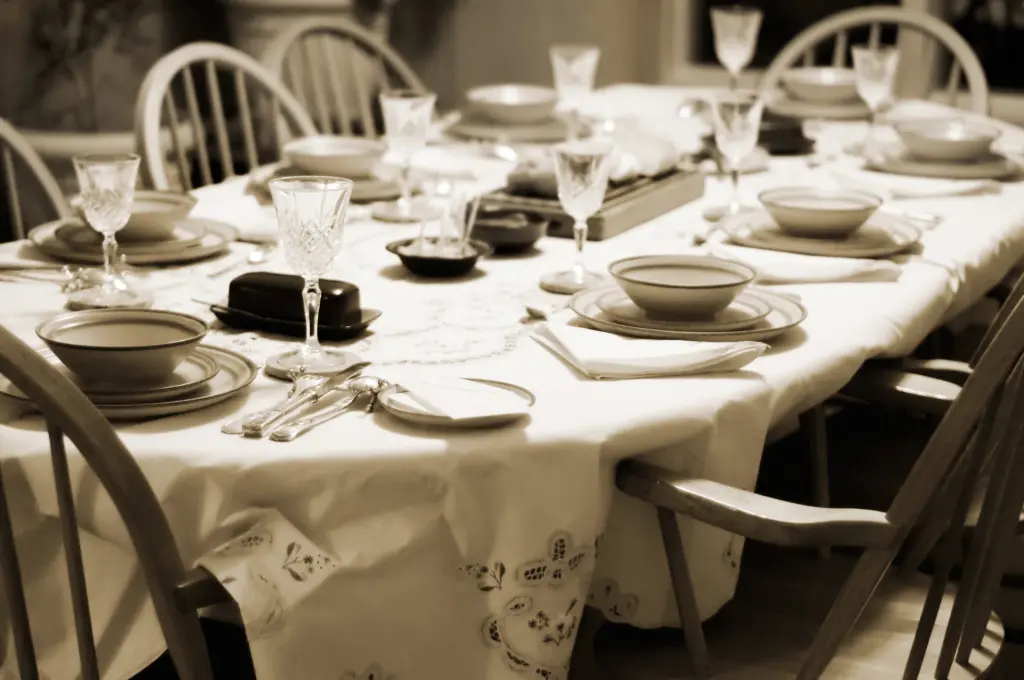Special Occasions Every Day: Why We Hide Our Treasured Possessions
In the pursuit of preserving special moments, American homeowners have inadvertently created a paradox in their own homes. A recent study of 2,000 U.S. homeowners reveals that many of us are living with beautiful, cherished items that rarely see the light of day, kept hidden away for “special occasions” that seldom materialize. Commissioned by SMEG USA and conducted by Talker Research, the survey found that across all generations—from Gen Z to Baby Boomers—a significant majority (68%) wish they could experience the joy of special occasions daily. Even more telling, 58% admitted they would use their “special occasion” items every single day if it were practical. These statistics paint a portrait of homes filled with untouched treasures and unfulfilled desires, where the extraordinary remains locked away while the ordinary dominates our daily experiences.
The study uncovered that nearly four in five homeowners (79%) possess items they consider too precious for everyday use. Most commonly, these treasures include fragile and intricate items like fine china, crystal glassware, and sterling silverware, with 69% of respondents specifically mentioning these categories. Perhaps most surprising is that 64% of homeowners confessed they have never even touched some of these special items, allowing them to gather dust while waiting for that “perfect moment.” More than half (54%) reported never having used a special occasion item simply because the appropriate opportunity hasn’t presented itself. This phenomenon raises important questions about the value we place on material possessions versus the experiences they’re meant to enhance. Are we truly honoring these cherished items by keeping them pristine but unused, or are we denying ourselves daily moments of beauty and joy?
Fear appears to be the primary culprit behind our reluctance to integrate these special pieces into our everyday lives. Nearly half (48%) of respondents cited concerns about damaging their treasured possessions as the main reason they remain shelved, while 45% considered them too impractical for daily use. Maintenance concerns also play a significant role, with 42% believing their special dishes and glassware require hand washing—especially vintage pieces, items made from unique materials, and sterling silver products. While 29% reported diligently washing these items by hand after each use, most (57%) clean them regularly regardless of use, with 21% washing monthly and 36% weekly. Many homeowners acknowledged they own items that could technically go in the dishwasher but still choose to wash them by hand, revealing how deeply ingrained our protective instincts are when it comes to objects we value. This anxiety about proper care creates a barrier between us and the very items meant to bring pleasure and elevate our daily experiences.
When special occasion items do make an appearance, they’re typically reserved for significant life milestones and celebrations. Holiday gatherings top the list at 70%, followed by anniversaries (65%), weddings (57%), milestone birthdays (56%), and graduations (50%). Less common but still noteworthy occasions include engagements (41%), having a child (41%), buying a first home (36%), entertaining guests (36%), funerals/wakes (32%), job promotions (32%), moving in with a partner (16%), and even divorce (10%). These statistics reveal our tendency to associate special items with formal, documented life events rather than finding reasons to celebrate the beauty of ordinary days. Despite keeping these treasures largely hidden away, 83% of respondents with special items intend to pass them down to children, grandchildren, and other family members. In fact, 41% have purchased items specifically with the intention of creating family heirlooms, mentioning candy dishes, crystal glassware, and vases among their future legacy pieces. This generational mindset suggests these items carry emotional significance far beyond their practical use, serving as physical connections to family history and traditions.
Mattia Sala, product manager at SMEG USA, encourages homeowners to reconsider this approach of saving special items only for rare occasions. “Don’t let the fear of cleanup and maintenance take away from your joy in using the special items from around your kitchen,” Sala advises. “Beautiful dishes, glassware, and cookware can help make an ordinary day feel extraordinary, and modern kitchen technology makes it easier to care for these cherished items.” Sala suggests starting in the kitchen by incorporating collectible cookware on quality ranges, chilling fine wines in stylish coolers, and using favorite stemware to elevate weekday meals. With modern dishwashers capable of safely handling everything from bulky cookware to delicate crystal, the practical barriers to using special items daily have largely disappeared. The real challenge seems to be psychological—overcoming our conditioning to save the best for later instead of enhancing our present moments.
The findings from this study offer a thought-provoking glimpse into our relationship with material possessions and how we define special occasions. While preservation instincts are understandable, particularly for items with sentimental or financial value, they also reveal a certain irony: we acquire beautiful things to enhance our lives but then deny ourselves their daily enjoyment. As homeowners increasingly express the desire to “live every day like a special occasion,” perhaps the solution lies in reframing our thinking about what constitutes a celebration-worthy moment. Rather than waiting for major milestones, we might consider the simple act of gathering for a family dinner, enjoying a quiet moment alone, or even successfully navigating a challenging week as occasions worthy of our finest possessions. By bringing our special items into everyday use, we don’t diminish their value—rather, we honor their purpose and maximize the joy they were designed to bring. In the end, the most cherished heirlooms might be not just the objects themselves but the memories created by actually using them.















